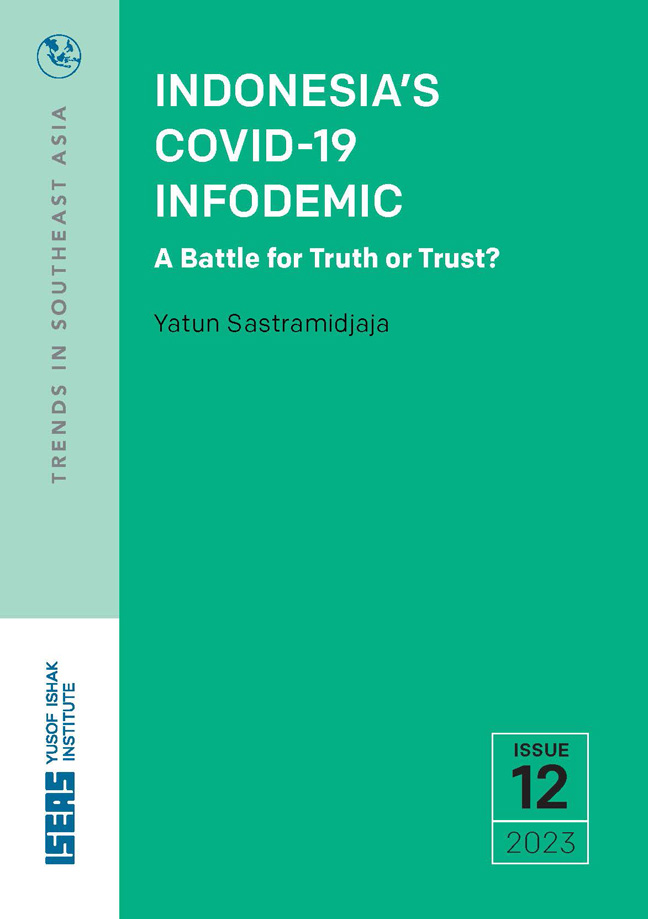Indonesia’s COVID-19 Infodemic: A Battle for Truth or Trust?
Published online by Cambridge University Press: 26 March 2024
Summary
INTRODUCTION
On 30 December 2022, many Indonesians breathed a sigh of relief, as their government lifted all remaining COVID-19 measures that day, including restrictions on social gatherings, mandatory mask-wearing indoors, and mandatory use of the COVID-19 tracking app PeduliLindungi (“to care and protect”) in public venues. According to President Joko Widodo (“Jokowi”), the situation was now “under control”, and the Indonesian population had built sufficient immunity to the virus. Indeed, a study from July 2022 conducted by the Health Ministry and the University of Indonesia found that 98.5 per cent of the population had antibodies against COVID-19, either from vaccination or past infections.
Still, President Jokowi advised the people to remain vigilant and to mask up in crowded places as a precaution. On 30 January 2023, the World Health Organization’s (WHO) Director-General, Tedros Adhanom Ghebreyesus, also called on the global community to exercise constant vigilance, since new virus variants were continuing to emerge, while the efficacy of administered vaccines was gradually waning. Moreover, the lagging vaccine uptake in low- and middle-income countries remained a source of concern. Despite the WHO declaring the COVID-19 pandemic officially over on 5 May 2023, Tedros urged the world to stay alert for a possible resurgence, and to heed and act upon the lessons learned from the COVID-19 emergency.
On Indonesian social media, Jokowi’s announcement in December 2022 and the WHO’s announcement in May 2023 led to a surge of posts on the topic, with thousands of netizens welcoming the news. But not all reactions were positive. Some doubted the wisdom of lifting restrictions or declaring the pandemic to be over, arguing that doing so could lead to public laxness. Others found reason to criticize Jokowi’s government or administrators, accusing them of mismanagement, corruption, or other faults unrelated to the news. There were also netizens posting and sharing variants of conspiracy theories that had circulated since the start of the pandemic—alluding, for example, that “Big Pharma” would profit even more in an endemic phase of COVID-19; or mocking China, which was just experiencing a surge in cases, for lagging behind, and warning of Chinese citizens trying to illegally enter Indonesia; or claiming that COVID-19 was a “hoax” to begin with and that vaccination must be halted immediately.
- Type
- Chapter
- Information
- Indonesia's COVID-19 InfodemicA Battle for Truth or Trust?, pp. 1 - 28Publisher: ISEAS–Yusof Ishak InstitutePrint publication year: 2023

